Iran's Chief Justice Warns Of Punishment Without Mercy For Women Without Hijab
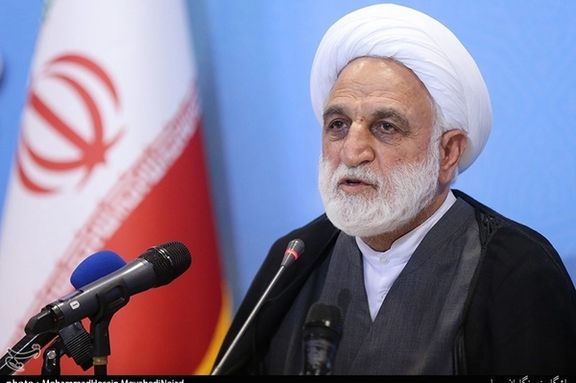
Iran’s Chief Justice Gholamhossein Mohseni Ejei warned of strict punishment for women flouting hijab rules.

Iran’s Chief Justice Gholamhossein Mohseni Ejei warned of strict punishment for women flouting hijab rules.
As the regime continues to fight a losing battle against the hijab rebellion, he said Saturday that “removing hijab is considered as enmity with values” and people who do not obey the rule will be "punished".
As the number of Iranian women defying compulsory hijab rules are on the rise, regime officials keep warning them that the Islamic Republic will not back down on the dress code.
He further threatened to prosecute women who appear in public unveiled, saying that “unveiling is tantamount to enmity with (our) values. [Those] who commit such anomalous acts will be punished and prosecuted without mercy,” however he declined to mention what the punishment entails.
Elsewhere in his remarks, Ejei added that law enforcement forces are “obliged to refer obvious crimes and any kind of abnormality that is against the religious law and occurs in public to judicial authorities”.
Following the death in custody of 22-year-old Kurdish girl Mahsa Amini for ‘improper hijab’ in September, a growing number of Iranian women and girls have been ditching their veils during the nationwide protests.
Iranian women now are risking arrest by going out without headscarves in public places, streets, malls, shops, banks, cafes, and even airports.
The comments by Iran's chief justice follow warnings from the interior ministry reinforcing the regime’s compulsory hijab law.
Hijab was described in the statement as one of the “foundations of the civilization of the Iranian nation” and “one of the practical principles of the Islamic Republic.”
It also called on the ordinary citizens to confront the women who refuse to wear hijab.

Two Iranian-born Pakistanis accused of an Iran-funded terror plot targeting a Jewish community center in Athens were allegedly offered 15,000 Euros.
The attack was discovered in a joint operation between Greek security services and Israeli intelligence agency, Mossad.
According to reports in Israeli media, the pair, who crossed into Greece illegally from Turkey, had been enticed by the financial reward, a claim corroborated by Greek authorities.
Greek Public Order Minister Takis Theodorikakos said earlier this week: “From the evidence we have obtained, the motivation appears to be financial. The organizer they consulted with was a fellow countryman in Iran,” he said, speaking to Antenna television.
It is the latest such incident in which Iran-funded agents target Jews and Israelis. In June last year, a group of Israeli tourists were airlifted out of Istanbul just moments before Iranian-funded terrorists committed a terror attack in the Turkish capital.
Israel’s Prime Minister Benjamin Netanyahu released a statement this week reiterating the ongoing threat to Jews and Israelis by “an extensive Iranian network run from Iran and spanning many countries".
Greek authorities named the suspects as only Haydar, 27, and Hussein, 29. They are wanted along with three other Pakistanis in Athens, part of a terror cell masterminded and funded from Tehran.
The suspects both entered Greece illegally from Turkey and had been in the country for at least four months.
It is possible further attacks were being planned, with a third suspect discovered outside Greece, and charged in absentia.
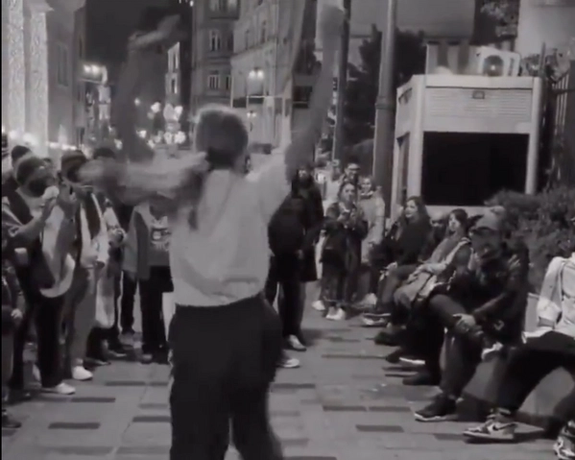
Civil disobedience can take different forms, but in Iran where it has been banned for over four decades, dancing has become a non-violent form of protest.
The Islamic fasting month of Ramadan has coincided with Iran's extremely popular Nowrouz New Year Holidays this year but instead of fasting and praying as they are expected to do, many people seem to be determined to enjoy the holidays after months of violently suppressed protests. They want to show the government they have not been subdued.
Iranian holiday makers have been sharing videos of themselves dancing and making merry -- on the streets, at the beach, in shopping malls or in parks – in different parts of the country, even some very conservative areas, despite the unwritten ban on dancing in public that can get them into the trouble with the authorities.
Holiday makers watching a girl dance at the beach in Reyshahr in southern Iran
In most videos shared on social media, women are dancing with bare heads and not on their own but with men in the middle of a circle of clapping and cheering onlookers which make their defiance even more biting to the hardline religious and political establishment.
Quite often, the performances, particularly in crowded streets and shopping malls, appear to be very spontaneous with the dancers quickly disappearing into the crowds within a few minutes in flash mob style.
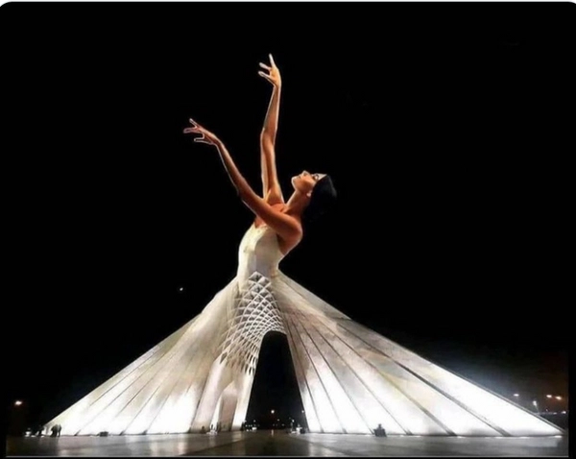
Most onlookers, as videos show, appear to be very happy and supportive of the dancers. In a few cases, they also chant “Woman, Life, Freedom”, the signature slogan of the 2022-23 protests, besides encouraging the dancers with clapping and singing along, and even showering them with money.
Girls dancing at a shopping mall in Jolfa, a small town in East Azarbaijan Province
In a few cases police has intervened to stop the performances and disperse the crowds. Weary of sparking fresh protests, authorities have shown some tolerance but at the same time tried to scare people into submission by shutting down some hospitality businesses while hardliners have complained that authorities are not taking sufficiently strong preventative action.
Police dispersing a crowd cheering a singing man and another who was dancing at Isfahan’s historical bridge during Nowrouz
In the tourist city of Amol earlier this week, the attorney general ordered a holiday resort to be shut down for women’s bareheaded dance in public in the month of Ramadan.
Similarly, the attorney general of Hamedan, Hassan Khanjani, ordered a café near the Ganjnameh Achaemenid inscriptions in the mountain outside the city to shut down. The café had “planned” music and dance programs for the visitors, he said, adding that two people were arrested in this connection for “encouraging others to depravity and moral corruption.”
Flash mob on a street in Karaj, 50km to the west of the capital Tehran
Hardliner ex-lawmaker Hamid Rasaei highlighted the videos of young girls dancing near Achaemenid inscriptions in Mount Behistun in the province of Kermanshah and protested to the ministry of cultural heritage and tourism for not acting to stop such infringements.
“Over 9,800 were martyred in Kermanshah province [in the Iran-Iraq war]… so that these places can be sensible places for families and to improve people’s historical understanding, not a place of dance,” Rasaei who likened the dance of a few young girls, who even had headscarves on, to “cabaret dancers” before the Islamic Revolution of 1979.

As regime supporters take the law into their own hands to combat the hijab rebellion, a man emptying a yogurt bucket onto the heads of two uncovered women has caused outrage in Iran.
The shocking video shows a man in the north eastern city of Shandiz assaulting the mother and daughter for not wearing the mandatory hijab.
Several men responded and threw the aggressor out of the store after a scuffle broke out.
It comes in the wake of calls by the regime for the public to take matters into their own hands to quash the new wave of women abandoning the Islamic headscarf around the country.
Mohammad Reza Shahrokhi, the representative of Supreme Leader Ali Khamenei in Lorestan province recently reiterated the hijab law, inciting yet more violence as he urged the “revolutionary youths and clerics” to deal with the "norm breakers”. On Friday more clerics made provocative statement about enforcing hijab, while on Saturday the head of the Judiciary threatened harsh measures.
In a determined statement on Thursday, the Islamic Republic’s Interior Ministry described the hijab as "one of the foundations of the civilization of the Iranian nation" and "one of the practical principles of the Islamic Republic.”
Iran’s Chief Justice Gholamhossein Mohseni Ejei this week reiterated threats against those daring to uncover. He warned women will be “prosecuted without mercy,” he said, without saying what the punishment entails.
Following the death in custody of Mahsa Amini, arrested for not wearing the hijab in a proper manner, women are increasingly appearing in public and on social media without the headscarf, with many burning it in public protest.

The US has decided to extend the deployment of the George H.W. Bush carrier strike group after last week's deadly attacks by Iran-backed forces.
The decision likely means the Bush strike group and its more than 5,000 US forces, which are now in the European Command operational area, will not be returning to home port in the United States on schedule.
US Central Command (CENTCOM) spokesperson Colonel Joe Buccino said: ”The extension of the George HW Bush Carrier Strike Group, inclusive of the USS Leyte Gulf, the USS Delbert D. Black, and the USNS Arctic, allows options to potentially bolster the capabilities of CENTCOM to respond to a range of contingencies in the Middle East.”
Buccino also noted a scheduled, expedited deployment of a squadron of A-10 attack aircraft to the region at a time when many of the country’s forces had been hoping for a withdrawal after an eight-year US deployment where along with Kurdish-led partners, the US is battling against the remnants of Islamic State
News of the deployment came a day after the Pentagon doubled its tally of American troops wounded in last week's attacks in Syria to 12, following the diagnosis of six US military personnel with traumatic brain injuries. The attacks also killed an American contractor and injured another.
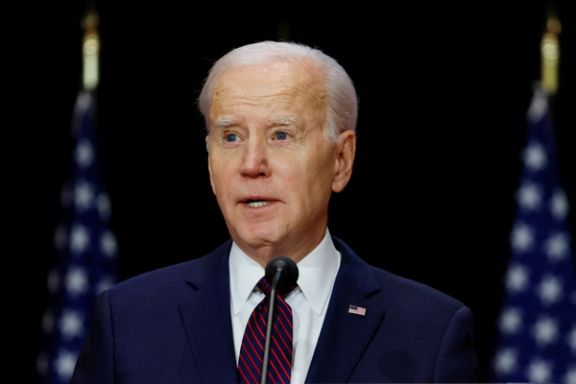
President Joe Biden warned Iran last week that the United States would act forcefully to protect Americans. The Pentagon has estimated eight militants were killed during retaliatory US airstrikes against two Iran-linked facilities in Syria during the tit-for-tat exchanges triggered by the first March 23 attack against a US base near the Syrian city of Hasaka.
Meanwhile, a senior member of the Russian military has called the US actions in Syria “provocative”. Russia, which wants the US presence removed from the area to allow it greater control, accused US forces of being spotted in areas outside the agreed zones.
Hundreds of ISIS fighters remain camped in desolate areas where neither the coalition nor the Syrian army exert full control. Russia - which together with Turkey is carrying out joint patrols in northern Syria - has agreed special zones where the coalition can operate.
Russian Rear Admiral Oleg Gurinov, head of the Russian Reconciliation Centre for Syria, told Russian news agency Tass that US forces had been spotted twice in areas which lay outside the agreed zones.
"Provocative actions on the part of US armed forces units have been noted in Hasaka province”, adding that the Russian side has lodged a protest with the coalition.
Russia intervened in the Syrian Civil War in 2015, tipping the balance in President Bashar Al-Assad's favour, leaving in its wake a complicated power struggle. Moscow has since expanded its military facilities in the country with a permanent air base and naval base.
Clearly aligned with Iran, which is supplying Russia with drones being used in its invasion of Ukraine, a Russian presence only strengthens Iranian influence in a region where Iranian proxies continue to wreak havoc.
Of 83 attacks in Iraq and Syria since President Joe Biden took office, just four retaliations have taken place, according to the Pentagon.
Republican lawmakers have demanded a more forceful deterrence against the Iranian regime, arguing that weak responses will invite more attacks on US forces.
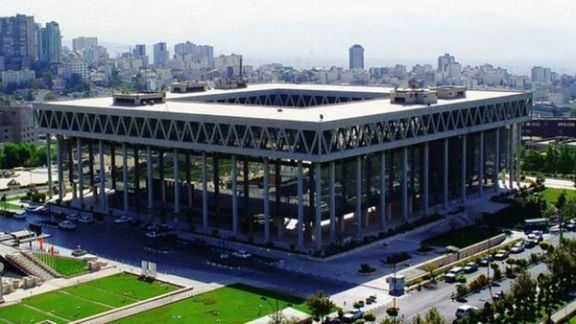
Reformist commentator and seasoned journalist Abbas Abdi says the "Iranian state television is not a media outlet. It is a propaganda tool that has lost its influence."
Speaking to Jamaran News website, Abdi said that that the Iranian state TV wishes to be the only organization that sends messages to the people, but this is no longer possible.
Abdi argued that the state TV disseminates its ideological and propaganda programs and foreign-based Persian speaking media broadcast a different message, but it is the public who decides which one to follow and believe.
"Any media outlet that is used as a tool for political propaganda will lose its influence," Abdi said, adding that "the fact that the state TV sends messages does not mean that the nation will necessarily get those messages. The public in Iran has its own expectations and awaits messages that are based on those expectations." That probably is why the audiences welcome the messages that come from foreign-based media particularly when there are very few independent media outlets in Iran , he said.
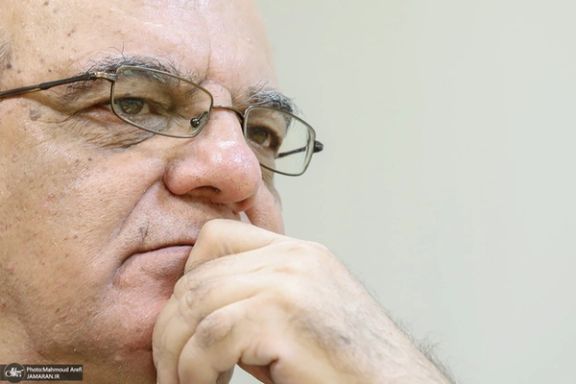
Abdi said, "Twenty years ago we used to tell the government that you cannot stop satellite television. Now we tell the officials that you cannot stop the Internet." He added that trying to stop the Internet is a mistake. "When the official media of a country is as inefficient as Iran's state TV, naturally foreign-based media take the lead," he said.
He further added, "The state television's performance is based on presenting narratives, not truth. And it fails to understand that five different reporters might tell the truth in five different ways without telling lies. The main material the media use is the truth."
Abdi said that social media have removed the borders between Iran and other countries. Nonetheless, what it presents is not exactly the truth or the whole truth. Those who are on social media do not necessarily represent the whole population. "It would be a mistake to generalize what you see on social media," he warned. "For example, social media has portrayed regime change as an easy task." He reminded that "You could be active on social media without your comments costing you too much. Of course, social media are part of the society, but you cannot reduce the society to what is going on social media platforms."
Abdi added that one of the reasons why social media are so effective is that the real world has many problems. Currently, he stressed, the Iranian government has lost the war of narratives to foreign-based media.
A March 30 report on Khabar Online website assessed a talk show on state TV which tried to give voice to Iranian intellectuals and academics in the aftermath of recent protests giving them an opportunity to offer their solutions for the dangerous political impasse. However, according to Khabar Online, it appears that open-mindedness did not last more than two months on the Iranian state TV.

In one program, sociologist Taghi Azad Armaki observed that the middle class as part of the society that could have mediated between the government and the rest of the population no longer exists, because of growing poverty. In another program academic Mohammad Fazeli called on the fundamentalist government to understand Iran's modern society and stop intervening in people’s private lives.
As the broadcast of the program stopped after some 8 weeks and the state TV returned to its unilateral rhetoric against the people and their civil liberties, this could mean that the government is not interested in listening to well-wishing voices.
This once again recalls Abdi's statement about the Islamic Republic's defeat in the war of narratives, and the state TV's solution, like always is typical of government officials: Ignoring the problem rather than bothering to solve it.